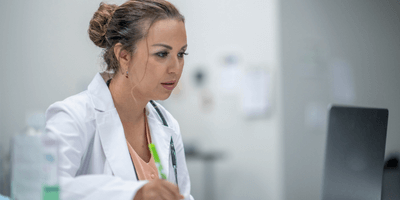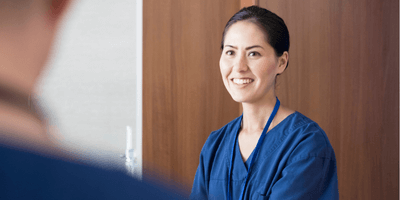Request patient recruitment data assistance
Our patient recruitment service offers researchers across Australia access to Cancer Institute NSW’s rich data holdings to support projects aimed at better patient care and improving outcomes for people diagnosed with cancer.
We encourage researchers to use our service for research aimed at evaluation of existing processes, understanding the psycho-social effects of cancer diagnoses on both people diagnosed with cancer and their families and/or carers, treatment outcomes or other defined outcomes.
Learn more about the patient recruitment service and how it can support your next research project.
Jump to:
- How does our service operate?
- Is there a cost involved?
- How can I determine the incidence of cancer in NSW?
- How do I identify my sample?
- How do I estimate consent rates?
- How do I find out if my study is feasible?
How does our service operate?
We work with researchers from across Australia to provide data to contribute to improved outcomes for people diagnosed with cancer. The Patient Recruitment Service can be used by researchers to:
• Identify eligible participants
• Recruit participants on your behalf
• Access additional data from pathology notifications
We can help you to refine your criteria, calculate consent rates, ensure that your protocol when submitted includes the processes that will be used, that forms/letters for participants meet our criteria and support your application to the NSW Population Health Services research Ethics Committee (PHSREC).
All patient recruitment studies using data from the NSW Cancer Registry (NSWCR) must be approved by the NSW Cancer Registry Data Custodian, NSW PHSREC and by the Chief Health Officer (CHO) or her delegate prior to commencement of the study.
Is there a cost involved?
The Data Access and Research Liaison Service is run on a cost recovery basis and an estimated quote will be provided for approval.
To provide an estimate and determine if your study is feasible, we need the following information:
• Incidence of the cancer
• Potential sample identified
• Estimated consent rates
• Likely time frame for recruitment
How can I determine the incidence of cancer in NSW?
Our interactive module Cancer Statistics NSW has freely available data by cancer type and clinical cancer groups. The data can be interrogated by some socio-demographic factors and by geography.
If the cancer is a rare cancer or you require specific topographies or morphologies this data can be requested using our aggregated data request form.
How do I identify my sample?
To identify possible participants in your study we require the following:
- Characteristics of the desired sample such as gender, age, cancer topography and/or morphology codes (eligibility criteria);
- The relevant criteria to exclude cases from the sample such as gender, age, previous cancer history (ineligibility criteria) and;
- The type of study retrospective or prospective?
- Retrospective studies use data that has been coded and is available to all researchers
- Prospective studies use new un-coded notifications of cancer. These studies require approval from the Manager, Cancer Services and Registries due to the workload (we will facilitate this for you).
How do I estimate consent rates?
Studies that wish to recruit people living with or affected by cancer in NSW have a two-stage consent process:
- Passive clinician consent followed by;
- Active participant consent
Passive clinician consent
PRS will write to a treating clinician to obtain consent to write to a participant. Our service uses a period of 28 days for a clinician to respond and we have a 93-95% passive clinician consent rate. Where we do not receive a refusal, we will write to potential participants.
Active participant consent
The estimated participant consent rate is a strong indicator of likely costs as a low consent rate means we will need to write to more people in order to recruit your sample. Factors that impact on consent rates include prognosis, survival and study complexity/requirements. The potential participant consent rate is something we can assist with as we can review similar recent studies and provide a calculated consent estimate. For participants we have a minimum period between contact of 14 days.
How can I find out if my study is feasible?
To find out more about this service and to determine feasibility of the study, please email the DARLS Coordinator with an outline of your proposed project CINSW-DARenquiries@health.nsw.gov,au. The Coordinator will call you to discuss and to set-up a meeting.



